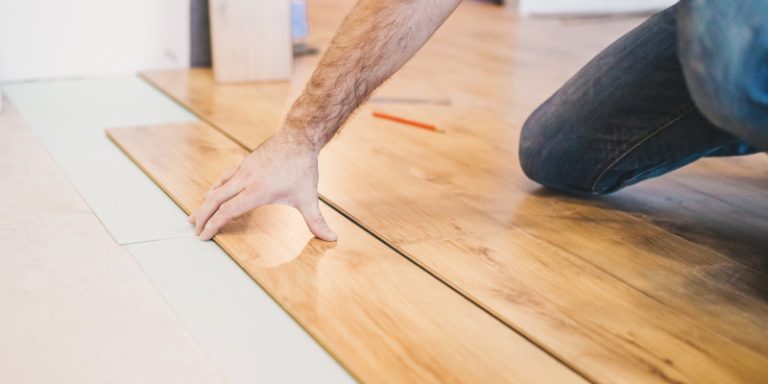When it comes to kitchen renovation, there are many advantages to consider. These benefits include durability, waterproofness, and ease of maintenance. In addition, choosing this type of flooring will help you protect the value of your home. However, you should be aware of the drawbacks of this type of flooring.
Waterproofness
Before choosing vinyl plank flooring for your kitchen remodeling San Diego project, you should first consider the waterproofness of the material. Waterproof vinyl planks are designed with a backing that sticks to the subfloor. This allows you to lay the planks onto the floor quickly. However, a loose-lay installation might be best for rooms with low traffic. Double-sided carpet tape should be placed under the planks and around the perimeter if this is the case.
For high-traffic areas, however, it is essential to consider the waterproofness of vinyl plank flooring during your kitchen renovation. Waterproof planks will not be damaged by prolonged flooding and can withstand spills. Another reason to choose waterproof flooring for your kitchen is that it is DIY-friendly. These floors can be installed by laying the planks on top of a subfloor made of wood or stone. Waterproof flooring is also easy to maintain. A broom or vacuum with a soft bristle brush will take care of daily cleaning, and you can also use damp mopping to keep the surface clean. Just clean your floors thoroughly after spills so that no particles are trapped beneath them. Unlike other flooring materials, vinyl plank flooring does not need to be refinished or re-sealed after a renovation.
Durability
While it might look gorgeous, the luxury vinyl planks in the kitchen can quickly get dirty. However, you can prolong its life with a good maintenance routine. To minimize stains, place rugs near the sink and where you wash dishes. If you spill any liquid, wipe it off immediately and dry it thoroughly. However, this type of flooring is not immune to sun damage. Exposure to sunlight will cause its color to fade over time. This type of wood contains sapwood, which allows it to expand and contract with changes in humidity. The sun will fade the wood within months. It is, therefore, essential to protect it from the sun’s rays. Another benefit of vinyl plank flooring is its water resistance. It is ideal for kitchens, bathrooms, and laundry rooms. It can also be used in outdoor areas. Unlike laminate, vinyl flooring is water-resistant and is not susceptible to stains.
Easy to maintain
If you plan to renovate a kitchen, you may consider installing vinyl plank flooring. This type of flooring is easy to maintain and will last for years. Regular sweeping and mopping will help keep it clean and scuff-free. If you need to clean it more frequently, use a mild cleaning solution and avoid harsh chemicals. You can also hire a floor cleaning company to clean it for you. When cleaning vinyl flooring, use a cleaning solution that does not leave soap residue on the floor. You should avoid saturating the floor with soap, as this can damage the glue and make the floor less durable. For stubborn stains on vinyl floors, you should scrub them off using a soft cloth. When installing vinyl plank flooring, it is a good idea to start by measuring the length and width of the room. Then, to ensure even spacing, measure from the wall to wall and ensure that there is at least a one-quarter-inch expansion space between each row of planks. Then, shuffle the planks, showing a slight variation in color and pattern. If you plan to install vinyl plank flooring in the kitchen, it’s recommended that you begin the installation perpendicular to the longest wall.
Limited resale value
While planning a kitchen renovation, it’s essential to consider your budget when choosing your new flooring. While you can refinish the floors after installation, the vinyl plank floor is thin and light, making it difficult to match a new color or texture. In addition, vinyl plank flooring has visible seams, which may make it difficult to match the rest of the room. However, you can arrange the flooring so that you reduce visible seams.
Another disadvantage to using vinyl during a kitchen renovation is that it is difficult to remove once you’ve installed it. You should carefully check the plank’s wear layer for discoloration and contact a flooring store for advice. Lastly, it would be best if you didn’t use glue to install vinyl plank flooring. While vinyl plank flooring is waterproof, it lacks the look of natural wood. In addition, vinyl feels hollow when you walk on it, so it will not be as luxurious as a solid wood floor. Despite these limitations, it’s an excellent option for kitchen and bathroom renovations.

